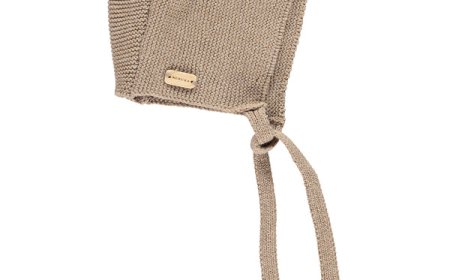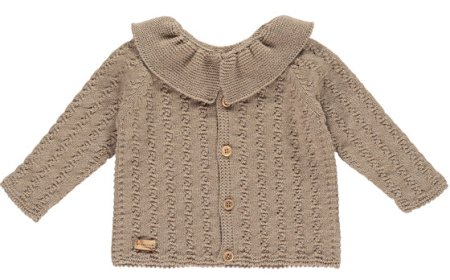Weight Loss Myth – Why feeding your dog LESS is NOT the answer
If your dog is overweight you may think feeding them less food is the right answer, but it’s not.
It can even be harmful.
Your veterinarian may recommend Hill’s Science Diet Perfect Weight or Royal Canin Veterinary Satiety Weight Management. These may help, but I’ll explain shortly why you shouldn’t consider these the optimal solution.
Related: Best rated weight loss dog foods.
Why feeding your dog less food is NOT the answer
You will find feeding your dog the right diet will be much more successful than reducing the quantity of the wrong diet.
I’ll explain why below, but first consider the problems which can be caused by reducing the amount of food you feed your dog:
Nutrient deficiency
When so many commercial dog foods barely meet the bar on nutrients, reducing the food can lead to your dog becoming deficient in numerous nutrients.
Worse than that, if the dog food is made from inappropriate ingredients (like many are), you will still be feeding your dog the ingredients which probably led to them being overweight in the first place.
Hunger and frustration
We want our dogs to be happy, but reducing their food can lead to them being hungry and frustrated.
Do you want your dog begging, scavenging, or being generally irritable?
Slowed metabolism
When you reduce calories in your dog’s diet by reducing food intake, this can cause their metabolism to slow down.
This actually makes weight loss harder, and in the long term may increase the risk of gaining even more weight.
Muscle loss, not fat loss
As most dog foods are high carbohydrate and low protein, reducing the food can starve your dog of protein.
The reason that’s a bad thing, is a lack of protein will lead to your dog breaking down muscle instead of fat.
Your dog may lose bulk (and weigh less), but they will also be weaker and have worse overall health.
Successful weight loss tips to really help your dog
I hope by now you’ve been considering your current dog food as the potential cause of weight gain in the first place, because 9 out of 10 times I find this to be the case.
(Feel free to go and read the ingredients on the back of the packet, or read the review on this website)
Feeding your dog the right diet and making sure they get enough exercise will be far more successful and better for your dog, and can even be cheaper than the weight management dog foods your veterinarian may recommend.
Consider the following effective methods to help your dog return to an ideal weight rather than starve them:
Switch to a higher protein/lower carbohydrate dog food
Carbohydrates aren’t a natural food for dogs, and cats even less so. Has your dog ever dug up a potato in the garden or trotted into a field of grain licking their lips?
Not only is your dog’s digestive system not designed to efficiently digest carbohydrates, it can spike their blood sugar leading to insulin release, promoting fat storage and leading to excess weight if your dog doesn’t burn off the excess energy.
Many will argue carbohydrates are fine for dogs because they’re apparently “omnivore” like us, when they’re clearly not. If that’s what you believe, ask yourself why cat foods are also high in carbohydrates when cats are factually obligate carnivores who have no requirement for carbohydrates in their diet.
Protein on the other hand is essential for your dog’s health and wellbeing, and what they truly thrive on. You can include animal fats in that too, as your dog will effectively digest fat and use it for energy.
Fat does not equal a fat dog.
If you lower carbohydrates in your dog’s diet then you will likely see them gradually return to a healthy weight.
Don’t fall for “weight management” dog foods made significantly from carbohydrates (which most of them sadly are). They tend to be high fibre to help your dog poo, but that’s not addressing the real issue of carbohydrates and inappropriate ingredients, is it?
Proteins and fats are much healthier for your dog, especially from animal sources.
Increase activity levels
Keeping your dog active is important, but as we have busy modern lives our dogs often suffer from lack of exercise in the same way we do.
If you’re stuck in a routine which leaves you stuck at home too much, then perhaps today is the day to turn that around.
I wake up at 5.30am and walk my dog before my wife and daughter wake up. As much as I hate getting up so early, it’s always such a great feeling to be out in the fresh air with my dog! Quality time!
It’s worth considering wild carnivores (like the wild counterparts of our domestic dogs and cats) don’t actually exercise much. The reason for that comes back to the previous section on carbohydrates, further reinforcing the point carbohydrates are what has made your dog (or cat) fat.
However, we feed our domestic dogs carbohydrates, and we fail to exercise them enough. Then we look at a magical solution like a vet recommended weight management kibble as if it will fix our dog, when it really won’t.
Regular exercise – even gentle walks – will help keep your dog healthy, help maintain their joints, and we will benefit too.
Consider other types of dog foods (including fresh and raw foods)
Whatever type of food you feed your dog, once you understand the ingredients you will find better options.
If you feed kibble, there will be better kibbles (there is a best rated list here).
There are also other styles of feeding, and a variety can help too.
Have you considered freeze or air-dried dog foods like Frontier Pets, ZIWI Peak, or Eureka? Or fresh foods delivered to your door like Lyka?
Have you considered feeding your dog fresh foods, BARF, or raw, even if it’s only part of their diet?
What about vet recommended dog foods for weight loss?
You may be surprised at my opinion of vet recommended weight management dog foods like Hill’s Science Diet Perfect Weight and Royal Canin Veterinary Satiety Weight Management.
You will find my reasons why on the weight loss dog foods page, but in a nutshell despite these formulas ramping up fibre or marginally lowering calories they still favour the same list of carbohydrate ingredients which likely caused your dog’s weight gain in the first place.
What's Your Reaction?
 Like
0
Like
0
 Dislike
0
Dislike
0
 Love
0
Love
0
 Funny
0
Funny
0
 Angry
0
Angry
0
 Sad
0
Sad
0
 Wow
0
Wow
0











































